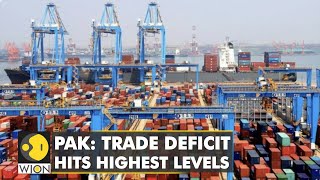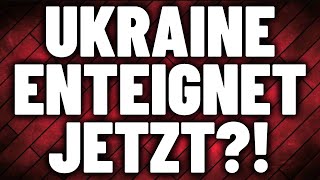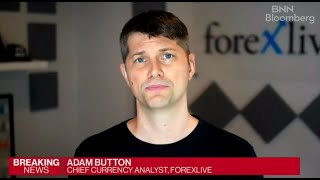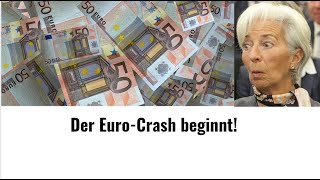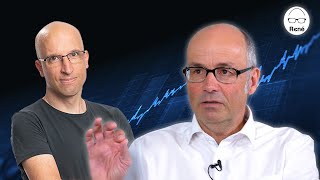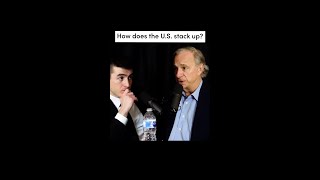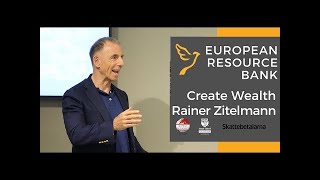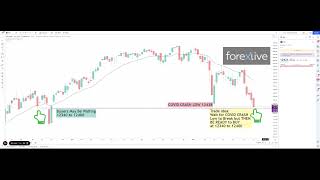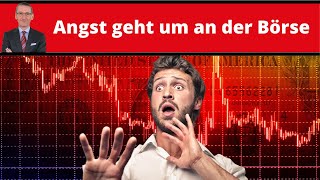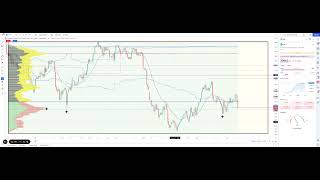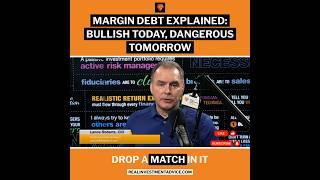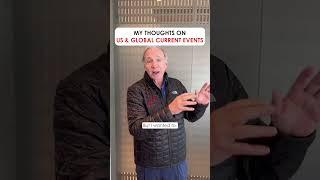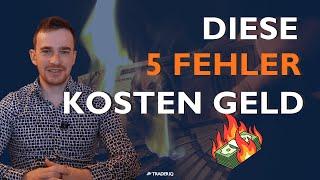Tag Archive: newsletter
Pakistan: Trade deficit hits highest levels | Record jump due to increase in oil price
Pakistan's trade deficit has hit the highest levels. There is a record jump due to the increase in oil prices in the international market.
Read More »
Read More »
UKRAINE ENTEIGNET EIGENE BÜRGER!
Wirtschaft aktuell: Was passiert jetzt? Ray Dalio, Markus Krall, Dirk Müller und andere Experten klären auf! Wirtschaftliche Entwicklung kompakt zusammengefasst! Wie soll ich jetzt investieren? Wie funktioniert die Wirtschaft? Kommt die Bankenkrise?
Read More »
Read More »
Berkshire Hathaway 1998 Shareholder Annual Meeting Complete – Warren Buffett and Charlie Munger
Berkshire Hathaway 1998 Shareholder Annual Meeting Complete - Warren Buffett and Charlie Munger
Read More »
Read More »
Russell Futures Analysis, 05 July. Bullish.
The Russell sold off in the first half of the day, all the way to the Value Area Low of the presented volume profile, and then staged a V shaped recovery (4 hour candles), reclaiming the shown channel. Some trade ideas are suggested. See the full technical analysis including a view of the Russell Futures since 2017 at https://www.forexlive.com/technical-analysis/russell-futures-anlaysis-05-july/
Read More »
Read More »
A playbook for the market volatility
The euro fell to the lowest since 2003 while the pound and loonie fell to the lows of the year. What kicked off the worries and what's coming next. Adam Button from ForexLive spoke with BNNBloomberg about trigger for today's round of market volatility and what's coming next. A recession may come but don't think of it like the pandemic recession or the global financial crisis. This is a different set setup with a different playbook.
LET'S CONNECT!...
Read More »
Read More »
Reaction: Alles wird teurer: Leben mit der Inflation | Sparkojote Dividenden Dienstag
Der #DividendenDienstag Livestream findet jeden Dienstag um 19:00 Uhr auf Instagram statt, zusammen mit Johannes Lortz philosophieren wir über #Dividenden #Aktien, das Investieren, die Börse und vieles mehr.
Read More »
Read More »
Der Euro-Crash beginnt! Marktgeflüster
Der Crash des Euro nimmt Fahrt auf - und das hat vor allem zwei Gründe: erstens die prekäre Lage Europas in Sachen Energie, und zweitens die desaströse Politik der EZB - die sich weniger um Inflation, als vielmehr um Klimawandel und Fragmentierung kümmert und keinen echten Drang verspürt, die Zinsen anzuheben.
Read More »
Read More »
Dollar HUI. Euro PFUI!
Der Dollar Index erreicht heute den höchsten Stand seit Dezember 2002. Im Gegenzug kracht der Euro auf neue Tiefs und findet sich zuletzt ebenfalls auf Niveaus, die in den letzten knapp 20 Jahren nicht mehr gesehen wurden. Unser Futures Analyst Martin Goersch geht heute auf die Charts ein und schaut, wie weit die Reise noch gehen kann....
Read More »
Read More »
Andreas Beck im Live-Talk: Die Krise ist da – was jetzt bei der Geldanlage zählt
Die Börsen blicken auf das schlechteste Halbjahr seit Jahrzehnten zurück. Es herrscht Krisenstimmung. Inflation, Zinserhöhungen, Rezessionsängste - viele Dinge belasten gerade die Märkte. Wie geht es weiter? Darüber spreche ich in einem Live-Talk mit Andreas Beck
Read More »
Read More »
Kehrtwende voraus? | Echtes Geld | Echtes Trading
Profitrader Martin Goersch vermittelt in dieser monatlichen Webinarreihe bei CapTrader sein Tradingwissen, das auf jahrelanger Erfahrung beruht, an die Webinarteilnehmer. Von Ichimoku Kinko Hyo, allgemeiner Chartanalyse, Markteinschätzungen, Einzelwerten bis hin zu COT Daten.
Read More »
Read More »
Kriegsprofiteure – damals und heute [Der aktuelle Kommentar 05.07.22]
Ein Kommentar von Ernst Wolff. Der amerikanische Schriftsteller Mark Twain hat einmal gesagt: „Geschichte wiederholt sich nicht, aber sie reimt sich.“ Dieser Satz gilt auch für die beiden Weltkriege und die Situation, in der wir uns aktuell befinden.
Read More »
Read More »
DAX Technical Analysis and a contrarian trade idea as it breaks the historic 2021 and 2022 lows!
DAX is a German stock market index that includes 40 of Germany's largest blue chip businesses listed on the Frankfurt Stock Exchange. This is a contrarian trade idea as the COVID crash low is broken! Entry price for this DAX Long, if all 3 orders get filled, is: 12355
See more at: https://www.forexlive.com/technical-analysis/buy-dax-after-it-just-broke-the-historic-covid-low-20220705/
Correction to the chart in the video: The price levels are not...
Read More »
Read More »
filmmaker & director talks about real-life lessons “Escuelita” (part one)
In this first segment filmmaker & director Guillermo Alfonso (Soflaa) talks about his best learning experiences and those were his teaching moments that prepared him for his independent projects.
FIYE show instagram: https://www.instagram.com/fiye.show/
Guillermo Alfonso instagram: https://www.instagram.com/soflaaa/
Read More »
Read More »
“Deutschland geht den Bach runter?” – Mein Statement
Seit Februar ist der "Russland-Ukraine-Konflikt" in aller Munde. Der WELT Finanzreporter Daniel D. Eckert hat dazu kürzlich einen Kommentar auf Twitter verfasst, welcher haarsträubend ist. Welche Folgen das damit vermittelte Mindset hat, erklärt Jens Rabe in diesem Video.
Read More »
Read More »
Die Angst geht um an der Börse – Leben von Dividenden – www.aktienerfahren.de
Link zu meinen Onlinekursen: https://thomas-anton-schuster.coachy.net/lp/finanzielle-unabhangigkeit
Vortrags- und Seminartermine, sowie kostenlose Anforderung des Aktienbewertungsblatts: https://aktienerfahren.de
Read More »
Read More »
Dow Jones Today, 20 minutes before the market open! July 2022
For today (05 July, 2022), this technical analysis applies ONLY IF AND WHEN Dow Jones crosses up 30650 after the market open. It can also apply for swing traders that would like to consider a Long, but only if and after Dow Jones futures (YM) closes a 4 hour candle above 30650
Credit Suisse slashed its end of year target for the S&P, which expedited selling today
We wait for Dow Jones to cross up 30650, and it it will do so, we then offer to...
Read More »
Read More »
280.000 Anleger aus dem Markt gespült :( DRAN BLEIBEN! NICHT VERKAUFEN!!! Depotupdate JUNI 2022
0:00 Die Farbe des Geldes Intro
1:30 280.000 Anleger weniger!
4:12 Depot-Performance im Juni 2022
5:40 Gesamtperformance 2022
6:40 Einzelne Aktien in der Übersicht
9:00 Es macht keinen Sinn jetzt zu verkaufen!
Read More »
Read More »









